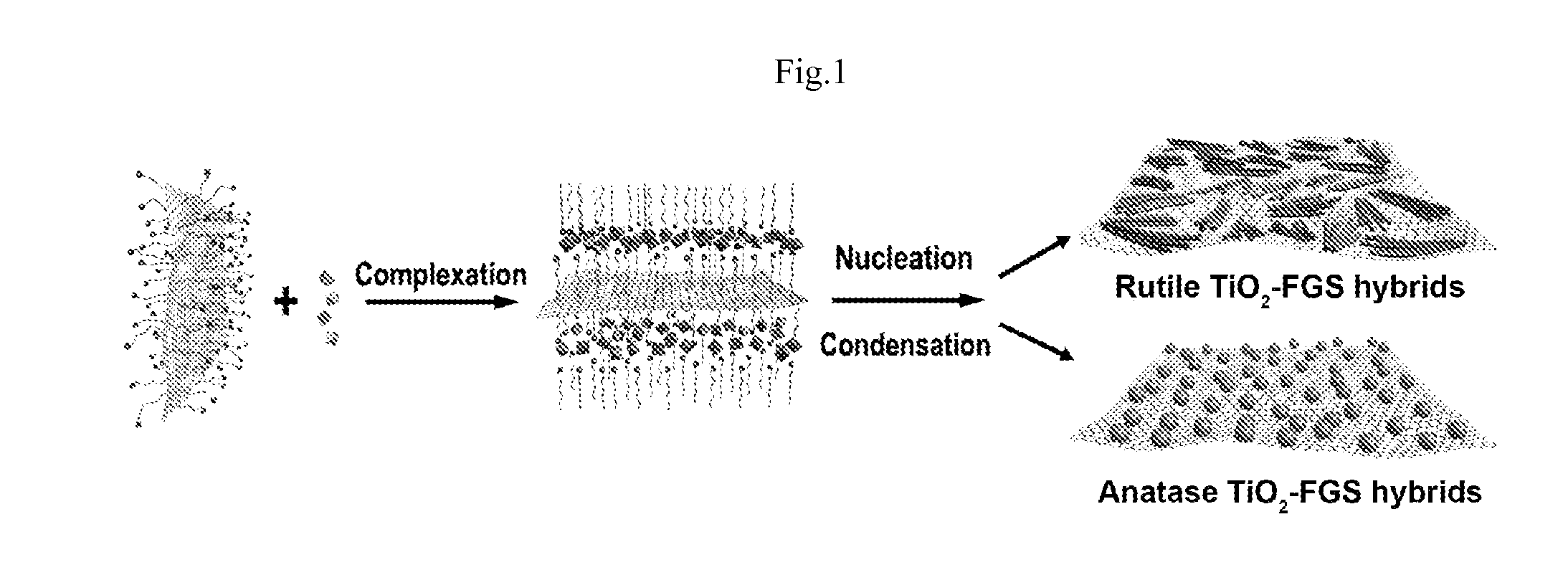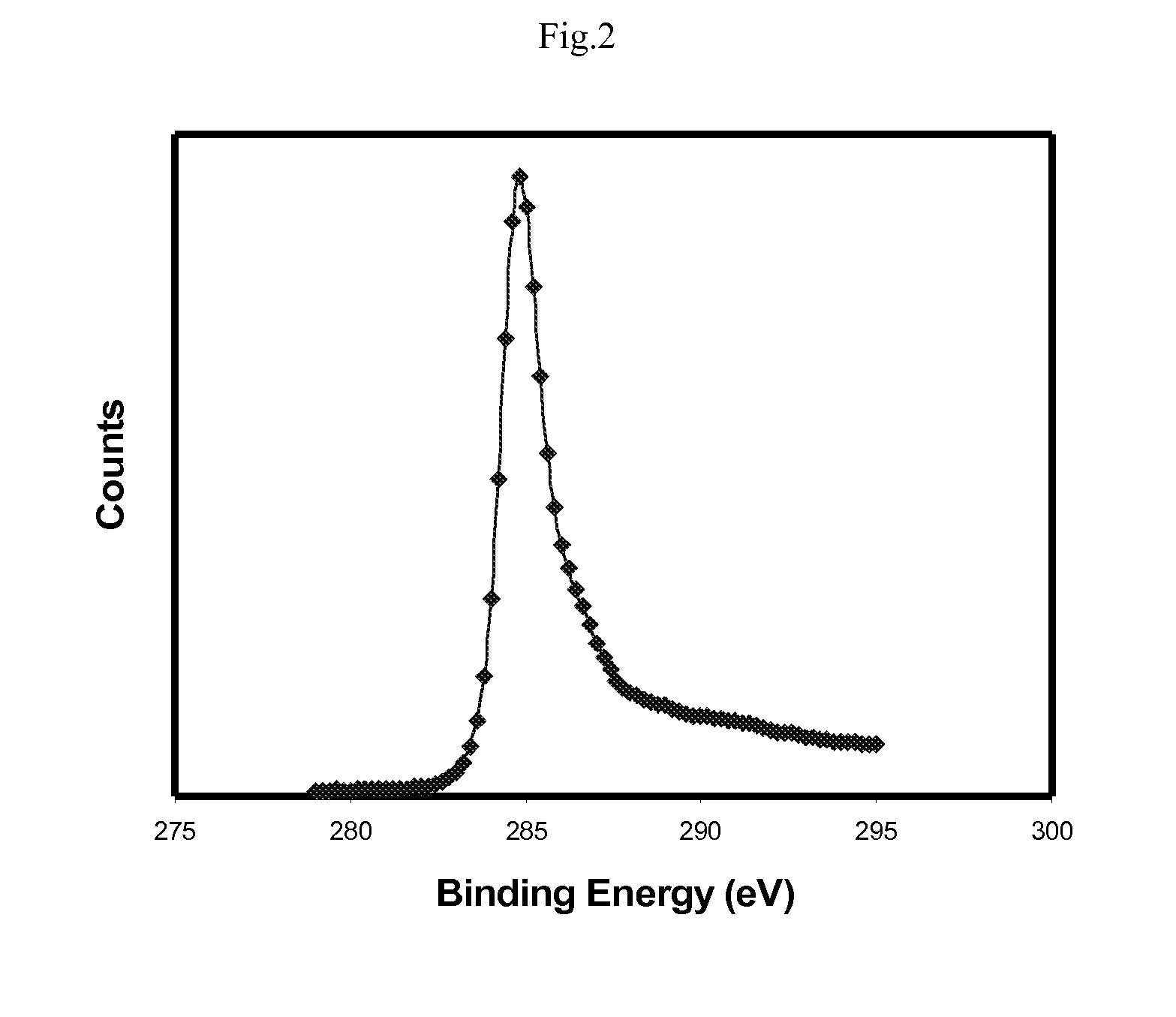Lithium ion batteries with titania/graphene anodes
a technology of titania and graphene, which is applied in the direction of fixed capacitor details, cell components, fixed capacitors, etc., can solve the problems of many potential electrode materials (e.g., oxide materials) in li-ion batteries, and cannot achieve complete reduction
- Summary
- Abstract
- Description
- Claims
- Application Information
AI Technical Summary
Benefits of technology
Problems solved by technology
Method used
Image
Examples
Embodiment Construction
[0056]For the purposes of promoting an understanding of the principles of the invention, reference will now be made to the embodiments illustrated in the drawings and specific language will be used to describe the same. It will nevertheless be understood that no limitations of the inventive scope is thereby intended, as the scope of this invention should be evaluated with reference to the claims appended hereto. Alterations and further modifications in the illustrated devices, and such further applications of the principles of the invention as illustrated herein are contemplated as would normally occur to one skilled in the art to which the invention relates.
[0057]A series of experiments were conducted to demonstrate certain embodiments of the present invention. In some of these experiments, anionic sulfate surfactants were used to assist the stabilization of graphene in aqueous solutions and facilitate the self-assembly of in-situ grown nanocrystalline TiO2, rutile and anatase, wit...
PUM
| Property | Measurement | Unit |
|---|---|---|
| charge/discharge rate | aaaaa | aaaaa |
| bond length | aaaaa | aaaaa |
| thickness | aaaaa | aaaaa |
Abstract
Description
Claims
Application Information
 Login to View More
Login to View More - R&D
- Intellectual Property
- Life Sciences
- Materials
- Tech Scout
- Unparalleled Data Quality
- Higher Quality Content
- 60% Fewer Hallucinations
Browse by: Latest US Patents, China's latest patents, Technical Efficacy Thesaurus, Application Domain, Technology Topic, Popular Technical Reports.
© 2025 PatSnap. All rights reserved.Legal|Privacy policy|Modern Slavery Act Transparency Statement|Sitemap|About US| Contact US: help@patsnap.com



